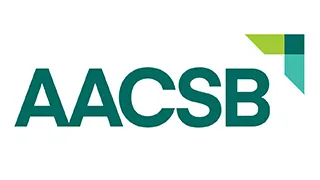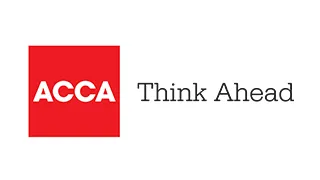About this course
Build your knowledge of accounting and sustainability practices, and enhance your career with our MSc International Accounting and Sustainability degree.
On our master's degree programme, you'll gain an advanced understanding of accounting and sustainability, and build on your prior knowledge and experience in the field. You'll also explore topics such as corporate governance, and the use of artificial intelligence in accounting.
The course contains a blend of theoretical, research and practice-led content, enabling you to develop deeper perspectives of accounting, financial and sustainability practices. You'll also understand how these practices are applied in organisations, as well as the wider context in which they operate.
Over the course of this 12-month programme, you'll learn how to:
- effectively contribute to the improvement of financial information systems
- evaluate and make informed managerial decisions on accounting and financial issues
- critically evaluate accounting and finance ideas and techniques
- prepare for your current or future career in an international accounting, sustainability, or consulting role
Our MSc International Accounting and Sustainability degree has a distinctive focus on sustainability and emerging environmentally-friendly technologies, including AI. You can choose to specialise in either of these subject areas and customise your learning.
This master's course also incorporates global perspectives on accounting, sustainability, and technology, by considering international cases, research, and professional practices. These learning approaches draw on the expertise of the Centre for Research in Accounting Accountability and Governance.
We regularly review our courses to ensure and improve quality. This course may be revised as a result of this. Any revision will be balanced against the requirement that the student should receive the educational service expected. Find out why, when, and how we might make changes.
Our courses are regulated in England by the Office for Students (OfS).
Course lead
MSc International Accounting and Sustainability is co-led by Dr Hanh (Blue) Nguyen and Dr Zhifeng Chen.
Dr Hanh (Blue) Nguyen is a lecturer in accounting at the Southampton Business School. Hanh's research focuses on how corporate boards can drive development and sustainability, and she has presented her research at several leading national and international conferences and workshops. Hanh's work has also been published in a number of academic journals, including the International Review of Financial Analysis, Business Strategy and the Environment, and Finance Research Letters. Visit Hanh's staff profile for more information.
Dr Zhifeng Chen is a lecturer in accounting and a qualified ACCA accountant with 12 years of industry experience. She is also a Global Reporting Initiative-certified professional with extensive expertise in sustainability reporting. Zhifeng’s research focuses on social and environmental disclosure, stakeholder decision-making, organisation hypocrisy, and corporate social responsibility (CSR), and her work has been published in top journals. Visit Zhifeng's staff profile for more information.
Learn more about this subject area
Course location
This course is based at Highfield.
Awarding body
This qualification is awarded by the University of Southampton.
Download the Course Description Document
The Course Description Document details your course overview, your course structure and how your course is taught and assessed.
Entry requirements
To apply for our MSc International Accounting and Sustainability course, you’ll need a 2:1 degree from one of the following subjects:
- engineering
- humanities
- business
- mathematics
- physical sciences
- information systems
- management
- social sciences
Find the equivalent international qualifications for your country.
However, we are unable to accept degrees in the following subjects:
- language studies: this includes degrees that focus on learning a language, such as business English or applied English, or translation. This restriction does not apply to English and English literature degrees which are taught in the UK.
- art, design or vocational studies: this includes degrees that focus on learning a particular form of craft or vocation, such as art, graphic design, photography, television broadcasting, script writing, dance or performance.
English language requirements
If English is not your first language, you must show that you can use English to the level we require. Visit our English language pages to find out which qualifications we accept and how you can meet our requirements.
If you are taking the International English Language Testing System (IELTS), you must get at least the following scores:
IELTS score requirements
- overall score
- 6.5
- reading
- 6.0
- writing
- 6.0
- speaking
- 6.0
- listening
- 6.0
If you do not meet the English language requirements through a test or qualification, you may be able to meet them by completing one of our pre-sessional English programmes before you start your course.
Pre-masters
If you don’t meet the academic requirements, you can complete a pre-master's programme through our partnership with OnCampus. Learn more about the programmes available.
Recognition of professional experience
If you don't have the exact entry requirements, but you have significant work experience in this sector we’ll assess your relevant professional experience, your subject knowledge and your aptitude for learning.
Your application will be considered on individual merit and you may be asked to attend an interview.
Got a question?
Please contact us if you're not sure you have the right experience or qualifications to get onto this course.
Email: enquiries@southampton.ac.uk
Tel: +44(0)23 8059 5000
Course structure
Our MSc International Accounting and Sustainability course lasts 12 months on a full-time basis.
The first 9 months involve taught study divided into 2 semesters lasting 15 weeks each. You'll complete 8 modules during this course, including 6 core or compulsory modules and 2 optional modules.
In the final 3 months of the course you'll work on your research task and dissertation.
Your learning will be led by the latest research, and we'll change modules periodically to reflect developments in the discipline. We'll also keep course content up to date as teaching staff members maintain various links with the accounting profession, external organisations, and academia.
Semester 1 overview
In your first semester, you'll complete 3 core and compulsory modules:
- Sustainability Accounting and Reporting
- Fundamentals of Financial Accounting
- Introduction to Sustainability
You'll also choose one optional module from the following:
- Executive Compensation
- Financial Reporting and Markets
- International Accounting and Taxation
- International Corporate Governance
- Sustainable Finance
Semester 2 overview
In your second semester, you'll complete 3 more core and compulsory modules:
- Foundations of Research in Accounting and Finance
- Emerging International Green Accounting Technologies, AI, Innovation and Sustainability
- Fundamentals of Management Accounting
You'll also choose another optional module from the following:
- Islamic Accounting Finance and Governance
- Accounting for Corporate Performance and Accountability
Once you've completed your modules for semester 2, you will study for your research task. This will lead to you submitting a dissertation.
Want more detail? See all the modules in the course.
Modules
The modules outlined provide examples of what you can expect to learn on this degree course based on recent academic teaching. As a research-led University, we undertake a continuous review of our course to ensure quality enhancement and to manage our resources. The precise modules available to you in future years may vary depending on staff availability and research interests, new topics of study, timetabling and student demand. Find out why, when and how we might make changes.
For entry in academic year 2026 to 2027
Year 1 modules
You must study the following modules :
Dissertation in Accounting, Finance and Management
The dissertation stage of your Postgraduate programme involves an extended, independent investigation of a topic of your own choice within accounting, finance and management and the preparation of a 15,000 word dissertation describing your work. Essentia...
Emerging International Green Accounting Technologies, AI, Innovation and Sustainability
Foundations of Research in Accounting and Finance
There are two broad objectives to the module: • The first objective is to introduce students to academic research concerned with social sciences in general and accounting, finance and management research, in particular. The course will therefore enhan...
Fundamentals of Financial Accounting
This module provides a critical understanding of fundamentals of financial accounting. It examines how financial statements are prepared and the concepts and measurement issues underlying their preparation, enabling you to appreciate the way that recordin...
Fundamentals of Management Accounting
This module provides you with the theoretical background and practical knowledge of management accounting. It introduces fundamental concepts of relevant cost and revenue for decision making and more contemporary management control techniques.
Sustainability Accounting and Reporting
Traditional accounting is mainly limited to the providing information for decision making by a range of major financial stakeholders, such as managers, investors and creditors. Given the increasing importance of sustainability issues such as climate chang...
Sustainability and Resilience
GGES6019 is a multidisciplinary unit designed for students with an interest in sustainable development, sustainability, green growth, complex socio-ecological systems, and resilient development. Over the term we will explore the key issues and debates aro...
You must also choose from the following modules :
Accounting for Corporate Performance and Accountability
Accounting systems provide useful inputs in the decision-making processes of organisations. The overall aim of this module is to provide an understanding of how accounting processes and techniques are implicated in the management of organisations, be it a...
Executive Compensation
The level and extent to which corporate executives, especially those of large multinational corporations pay themselves has, and continues to be, a hot and sometimes, controversial re-occurring issue of major interests to governments, regulators, media an...
Financial Reporting and Markets
Students will be introduced to the regulation of financial reporting; the information perspective to financial reporting; the valuation relevance of financial reporting; economic consequences and Positive Accounting Theory; Earnings management.
International Accounting and Taxation
The module will provide students with an understanding of the nature of accounting practices and taxation of international activities. With respect to accounting it emphasises the importance of a country’s cultural, social, economic, legal and political e...
International Corporate Governance
Corporate Governance is an area that has grown rapidly in the last few years fuelled by high profile corporate collapses and financial crisis. The module builds on sound theoretical base to encompass the latest developments in the field worldwide. It tak...
Islamic Accounting, Finance and Governance
The module is designed to offer a comprehensive understanding of accounting, finance and governance of Islamic financial institutions and social financial services. This module will allow students to critically compare the ideal-ethical principles/theorie...
Sustainable Finance
This module provides a comprehensive overview of sustainable finance- a rapidly growing area at the intersection of finance and sustainability. The module underscores the significance of sustainable finance, illustrating its potential impact in shaping fi...
Learning and assessment
Learning
On our international accounting and sustainability degree, we take a flexible and inclusive approach to learning and teaching. This will enable all students to achieve the intended learning outcomes.
You'll gain an understanding of theoretical ideas and technical methods through a combination of:
- lectures
- discussion classes and seminars
- individual and group practical exercises
- case studies
- directed reading
When not attending lectures, seminars and other timetabled sessions, you'll be expected to continue learning independently through self-study. Typically, this will involve:
- reading journal articles and books
- working on individual and group projects
- undertaking research in the library
- completing coursework assignments and presentations
- preparing for other types of assessments and examinations
You'll develop your analytical, reflective, logical, and creative intellectual skills in response to each module, and enhance these skills through various assessments.
Assessment
We use a range of individual and group assessments on this programme to ensure all students meet the learning outcomes. Typically, these assessment methods include:
- individual written examination
- class tests
- essays
- group activities
- presentations
Some assessments will be based around practical problems, and you'll need to apply both quantitative and qualitative analysis tools.
Other assessments will address more theoretical issues, and you'll be expected to apply practical methods of accounting, including relevant research methods.
You'll also be expected to demonstrate your ability to analyse an issue in a critical, logical and reflective manner as part of your dissertation.
Dissertation
On successful completion of the taught part of the programme, you'll complete an individual research task.
As part of this task, you'll write a 15,000-word dissertation. Your dissertation will put your individual research into the context of existing work in the relevant subject area, and set out the results of your research.
Your MSc award is assessed entirely on the basis of your dissertation, which will be supervised by a member of academic staff.
Academic Support
You'll be taught by an experienced teaching team, whose expertise and knowledge are closely matched to the course content. The team includes:
- senior academics
- professional practitioners with industry experience
- demonstrators
- technical officers
Trained postgraduate research students may also contribute to the teaching of seminars, if their research specialism is directly related to the module topic. They may also be involved in practical classes, project work and field trips. All contributions will be supervised by the module leader.
When you arrive at the University of Southampton, we will allocate to you a personal academic tutor. They will typically be a member of academic staff in your own or a closely related subject area.
Your tutor will offer one-to-one support and advice throughout your time at Southampton, and will support you in your studies or with other issues you may have.
Careers and employability
The employability and enterprise skills you'll gain from this course are reflected in the Southampton skills model. When you join us you'll be able to use our skills model to track, plan, and benefit your career development and progress.
Download skills overview

Work experience opportunities
Choosing to do work experience is a great way to enhance your employability, build valuable networks, and evidence your potential. Learn about the different work and industry experience options at Southampton.
Careers services and support
We are a top 20 UK university for employability (QS Graduate Employability Rankings 2022). Our Careers, Employability and Student Enterprise team will support you. This support includes:
- work experience schemes
- CV and interview skills and workshops
- networking events
- careers fairs attended by top employers
- a wealth of volunteering opportunities
- study abroad and summer school opportunities
We have a vibrant entrepreneurship culture and our dedicated start-up supporter, Futureworlds, is open to every student.
Your career ideas and graduate job opportunities may change while you're at university. So it is important to take time to regularly reflect on your goals, speak to people in industry and seek advice and up-to-date information from Careers, Employability and Student Enterprise professionals at the University.
Fees, costs and funding
Tuition fees
Fees for a year's study:
- UK students pay £16,400.
- EU and international students pay £32,500.
Deposit
If you're an international student on a full-time course, we'll ask you to pay £2,000 of your tuition fees in advance, as a deposit.
Your offer letter will tell you when this should be paid and provide full terms and conditions.
Find out about exemptions, refunds and how to pay your deposit on our tuition fees for overseas students page.
What your fees pay for
Your tuition fee covers the full cost of tuition and any exams. The fee you pay will remain the same each year from when you start studying this course. This includes if you suspend and return.
Find out how to pay your tuition fees.
Accommodation and living costs, such as travel and food, are not included in your tuition fees. There may also be extra costs for retake and professional exams.
Explore:
Extra costs you might have to pay
Calculators
In situations where you require a calculator, we allow non-programmable, scientific Casio calculators.
Stationery
You'll be expected to provide your own day-to-day stationery items, such as pens, pencils and notebooks.
We'll specify any specialist stationery items you may need in the relevant module profile.
Textbooks
The library will identify the best way to provide essential texts for modules, including e-books, digitised chapter extracts, or a limited number of print books.
You can request for the library to purchase additional print copies, or borrow an additional copy via our inter-library loans service. However, you may prefer to buy your own copies of high-demand titles.
Printing
In most cases, written coursework such as essays and projects are submitted online. However, you may need to submit a printed copy of some projects and dissertations. You'll need to cover the costs of printing and photocopying.
10% alumni discount
If you’re a graduate of the University of Southampton, you could be eligible for a 10% discount on your postgraduate tuition fees.
Postgraduate Master’s Loans (UK nationals only)
This can help with course fees and living costs while you study a postgraduate master's course. Find out if you're eligible.
Southampton Business School Postgraduate UK Scholarship
A scholarship is available to home fee paying students studying an eligible postgraduate master's at Southampton Business School.
Find out more about the Southampton Business School Postgraduate UK Scholarship, including eligibility and conditions.
Southampton Business School Deans Postgraduate Scholarship
A scholarship of £9,000 is available to international students studying for an eligible postgraduate master’s at Southampton Business School.
Find out more about the Southampton Business School Deans Postgraduate Scholarship, including eligibility and conditions.
Southampton Business School Postgraduate International Scholarship
A scholarship is available to international students studying for an eligible postgraduate master’s at the Southampton Business School.
Find out more about the Southampton Business School Postgraduate International Scholarship, including eligibility and conditions.
Other postgraduate funding options
A variety of additional funding options may be available to help you pay for your master’s study. Both from the University and other organisations.
Funding for EU and international students
Find out about funding you could get as an international student.
How to apply
- Use the blue 'apply for this course' button on this page to take you to our postgraduate admissions system.
- Create an account which gives you access to your own application portal. .
- Search for the course you want to apply for.
- Complete the application form and upload any supporting documents.
- Submit your application.
For further details of our admission process, read our step by step guide to postgraduate taught applications.
Application deadlines
UK students
The deadline to apply for this course is Wednesday 9 September 2026, midday UK time.
We advise applying early as applications may close before the expected deadline if places are filled.
International students
The deadline to apply for this course is Wednesday 26 August 2026, midday UK time.
We advise applying early as applications may close before the expected deadline if places are filled.
Application assessment fee
There is no application assessment fee for postgraduate courses starting in 2026.
Supporting information
When you apply you’ll need to submit a personal statement explaining why you want to take the course.
You’ll need to include information about:
- your knowledge of the subject area
- why you want to study a postgraduate qualification in this course
- how you intend to use your qualification
You'll also need to submit two academic references.
Please include the required paperwork showing your first degree and your IELTS English language test score (if you are a non-native English speaker) with your application. Without these, your application may be delayed.
What happens after you apply
You'll be able to track your application through our online Applicant Record System.
We will aim to send you a decision 6 weeks after you have submitted your application.
If we offer you a place, you will need to accept the offer within 30 working days. If you do not meet this deadline, we will offer your place to another applicant.
Unfortunately, due to number of applications we receive, we may not be able to give you specific feedback on your application if you are unsuccessful.
Equality and diversity
We treat and select everyone in line with our Equality and Diversity Statement.
Got a question?
Please contact us if you're not sure you have the right experience or qualifications to get onto this course.
Email: enquiries@southampton.ac.uk
Tel: +44(0)23 8059 5000
Related courses
-
Study
- View all courses
- Taught postgraduate study
- Pre-sessional English courses
-
Subjects
- Acoustical engineering
- Aeronautical and astronautical engineering
- Ageing and gerontology
- Archaeology
- Art, design and fashion
- Audiology
- Biological sciences
- Biomedical and medical engineering
- Business, accounting, finance and marketing
- Chemistry
- Civil engineering
- Computer science and software engineering
- Economics
- Education
- Electrical and electronic engineering
- English
- Film studies
- French
- Geography and environmental science
- History
- Languages and linguistics
- Law
- Maritime engineering
- Mathematical sciences
- Mechanical engineering
- Medicine
- Music
- Nursing, midwifery and healthcare
- Ocean and Earth science
- Philosophy
- Photonics and optoelectronics
- Physics and astronomy
- Politics and international relations
- Psychology
- Social statistics and demography
- Sociology, social policy and criminology
-
PhDs and research degrees
- Create your own research project
-
Find a PhD project
- A missing link between continental shelves and the deep sea: Have we underestimated the importance of land-detached canyons?
- A study of rolling contact fatigue in electric vehicles (EVs)
- Acoustic monitoring of forest exploitation to establish community perspectives of sustainable hunting
- Acoustic sensing and characterisation of soil organic matter
- Advancing intersectional geographies of diaspora-led development in times of multiple crises
- Aero engine fan wake turbulence – Simulation and wind tunnel experiments
- Against Climate Change (DACC): improving the estimates of forest fire smoke emissions
- All-in-one Mars in-situ resource utilisation (ISRU) system and life-supporting using non-thermal plasma
- An electromagnetic study of the continent-ocean transition southwest of the UK
- An investigation of the relationship between health, home and law in the context of poor and precarious housing, and complex and advanced illness
- Antibiotic resistance genes in chalk streams
- Being autistic in care: Understanding differences in care experiences including breakdowns in placements for autistic and non-autistic children
- Biogeochemical cycling in the critical coastal zone: Developing novel methods to make reliable measurements of geochemical fluxes in permeable sediments
- Bloom and bust: seasonal cycles of phytoplankton and carbon flux
- British Black Lives Matter: The emergence of a modern civil rights movement
- Building physics for low carbon comfort using artificial intelligence
- Business studies and management: accounting
- Business studies and management: banking and finance
- Business studies and management: decision analytics and risk
- Business studies and management: digital and data driven marketing
- Business studies and management: human resources (HR) management and organisational behaviour
- Business studies and management: strategy, innovation and entrepreneurship
- Carbon storage in reactive rock systems: determining the coupling of geo-chemo-mechanical processes in reactive transport
- Cascading hazards from the largest volcanic eruption in over a century: What happened when Hunga Tonga-Hunga Ha’apai erupted in January 2022?
- Characterisation of cast austenitic stainless steels using ultrasonic backscatter and artificial intelligence
- Climate Change effects on the developmental physiology of the small-spotted catshark
- Climate at the time of the Human settlement of the Eastern Pacific
- Collaborative privacy in data marketplaces
- Compatibility of climate and biodiversity targets under future land use change
- Cost of living in modern and fossil animals
- Creative clusters in rural, coastal and post-industrial towns
- Deep oceanic convection: the outsized role of small-scale processes
- Defect categories and their realisation in supersymmetric gauge theory
- Defining the Marine Fisheries-Energy-Environment Nexus: Learning from shocks to enhance natural resource resilience
- Design and fabrication of next generation optical fibres
- Developing a practical application of unmanned aerial vehicle technologies for conservation research and monitoring of endangered wildlife
- Development and evolution of animal biomineral skeletons
- Development of all-in-one in-situ resource utilisation system for crewed Mars exploration missions
- Ecological role of offshore artificial structures
- Effect of embankment and subgrade weathering on railway track performance
- Efficient ‘whole-life’ anchoring systems for offshore floating renewables
- Electrochemical sensing of the sea surface microlayer
- Engagement with nature among children from minority ethnic backgrounds
- Enhancing UAV manoeuvres and control using distributed sensor arrays
- Ensuring the Safety and Security of Autonomous Cyber-Physical Systems
- Environmental and genetic determinants of Brassica crop damage by the agricultural pest Diamondback moth
- Estimating marine mammal abundance and distribution from passive acoustic and biotelemetry data
- Evolution of symbiosis in a warmer world
- Examining evolutionary loss of calcification in coccolithophores
- Explainable AI (XAI) for health
- Explaining process, pattern and dynamics of marine predator hotspots in the Southern Ocean
- Exploring dynamics of natural capital in coastal barrier systems
- Exploring the mechanisms of microplastics incorporation and their influence on the functioning of coral holobionts
- Exploring the potential electrical activity of gut for healthcare and wellbeing
- Exploring the trans-local nature of cultural scene
- Facilitating forest restoration sustainability of tropical swidden agriculture
- Faulting, fluids and geohazards within subduction zone forearcs
- Faulting, magmatism and fluid flow during volcanic rifting in East Africa
- Fingerprinting environmental releases from nuclear facilities
- Flexible hybrid thermoelectric materials for wearable energy harvesting
- Floating hydrokinetic power converter
- Glacial sedimentology associated subglacial hydrology
- Green and sustainable Internet of Things
- How do antimicrobial peptides alter T cell cytokine production?
- How do calcifying marine organisms grow? Determining the role of non-classical precipitation processes in biogenic marine calcite formation
- How do neutrophils alter T cell metabolism?
- How well can we predict future changes in biodiversity using machine learning?
- Hydrant dynamics for acoustic leak detection in water pipes
- If ‘Black Lives Matter’, do ‘Asian Lives Matter’ too? Impact trajectories of organisation activism on wellbeing of ethnic minority communities
- Illuminating luciferin bioluminescence in dinoflagellates
- Imaging quantum materials with an XFEL
- Impact of neuromodulating drugs on gut microbiome homeostasis
- Impact of pharmaceuticals in the marine environment in a changing world
- Improving subsea navigation using environment observations for long term autonomy
- Information theoretic methods for sensor management
- Installation effect on the noise of small high speed fans
- Integrated earth observation mapping change land sea
- Interconnections of past greenhouse climates
- Investigating IgG cell depletion mechanisms
- Is ocean mixing upside down? How mixing processes drive upwelling in a deep-ocean basin
- Landing gear aerodynamics and aeroacoustics
- Lightweight gas storage: real-world strategies for the hydrogen economy
- Machine learning for multi-robot perception
- Machine learning for multi-robot perception
- Marine ecosystem responses to past climate change and its oceanographic impacts
- Mechanical effects in the surf zone - in situ electrochemical sensing
- Microfluidic cell isolation systems for sepsis
- Migrant entrepreneurship, gender and generation: context and family dynamics in small town Britain
- Miniaturisation in fishes: evolutionary and ecological perspectives
- Modelling high-power fibre laser and amplifier stability
- Modelling soil dewatering and recharge for cost-effective and climate resilient infrastructure
- Modelling the evolution of adaptive responses to climate change across spatial landscapes
- Nanomaterials sensors for biomedicine and/or the environment
- New high-resolution observations of ocean surface current and winds from innovative airborne and satellite measurements
- New perspectives on ocean photosynthesis
- Novel methods of detecting carbon cycling pathways in lakes and their impact on ecosystem change
- Novel technologies for cyber-physical security
- Novel transparent conducting films with unusual optoelectronic properties
- Novel wavelength fibre lasers for industrial applications
- Ocean circulation and the Southern Ocean carbon sink
- Ocean influence on recent climate extremes
- Ocean methane sensing using novel surface plasmon resonance technology
- Ocean physics and ecology: can robots disentangle the mix?
- Ocean-based Carbon Dioxide Removal: Assessing the utility of coastal enhanced weathering
- Offshore renewable energy (ORE) foundations on rock seabeds: advancing design through analogue testing and modelling
- Optical fibre sensing for acoustic leak detection in buried pipelines
- Optimal energy transfer in nonlinear systems
- Optimal energy transfer in nonlinear systems
- Optimizing machine learning for embedded systems
- Oxidation of fossil organic matter as a source of atmospheric CO2
- Partnership dissolution and re-formation in later life among individuals from minority ethnic communities in the UK
- Personalized multimodal human-robot interactions
- Preventing disease by enhancing the cleaning power of domestic water taps using sound
- Quantifying riparian vegetation dynamics and flow interactions for Nature Based Solutions using novel environmental sensing techniques
- Quantifying the response and sensitivity of tropical forest carbon sinks to various drivers
- Quantifying variability in phytoplankton electron requirements for carbon fixation
- Resilient and sustainable steel-framed building structures
- Resolving Antarctic meltwater events in Southern Ocean marine sediments and exploring their significance using climate models
- Robust acoustic leak detection in water pipes using contact sound guides
- Silicon synapses for artificial intelligence hardware
- Smart photon delivery via reconfigurable optical fibres
- The Gulf Stream control of the North Atlantic carbon sink
- The Mayflower Studentship: a prestigious fully funded PhD studentship in bioscience
- The calming effect of group living in social fishes
- The duration of ridge flank hydrothermal exchange and its role in global biogeochemical cycles
- The evolution of symmetry in echinoderms
- The impact of early life stress on neuronal enhancer function
- The oceanic fingerprints on changing monsoons over South and Southeast Asia
- The role of iron in nitrogen fixation and photosynthesis in changing polar oceans
- The role of singlet oxygen signaling in plant responses to heat and drought stress
- Time variability on turbulent mixing of heat around melting ice in the West Antarctic
- Triggers and Feedbacks of Climate Tipping Points
- Uncovering the drivers of non-alcoholic fatty liver disease progression using patient derived organoids
- Understanding recent land-use change in Snowdonia to plan a sustainable future for uplands: integrating palaeoecology and conservation practice
- Understanding the role of cell motility in resource acquisition by marine phytoplankton
- Understanding the structure and engagement of personal networks that support older people with complex care needs in marginalised communities and their ability to adapt to increasingly ‘digitalised’ health and social care
- Unpicking the Anthropocene in the Hawaiian Archipelago
- Unraveling oceanic multi-element cycles using single cell ionomics
- Unravelling southwest Indian Ocean biological productivity and physics: a machine learning approach
- Using acoustics to monitor how small cracks develop into bursts in pipelines
- Using machine learning to improve predictions of ocean carbon storage by marine life
- Vulnerability of low-lying coastal transportation networks to natural hazards
- X-ray imaging and property characterisation of porous materials
- Funding your research degree
- How to apply for a PhD or research degree
- How to make a PhD enquiry
- Support while studying your PhD or research degree
- Exchanges and studying abroad
- Undergraduate study
-
Tuition fees, funding and scholarships
- Fee status
- Scholarships
- Undergraduate funding options
-
Postgraduate funding options
-
Postgraduate scholarships
- Black Futures Postgraduate Research Scholarships (Environmental and Life Sciences)
- Black Futures scholarship
- China Excellence Scholarship
- GREAT Scholarships 2025 – Egypt
- GREAT Scholarships 2025 – France
- GREAT Scholarships 2025 – Ghana
- Horizon Europe fee waiver
- India Excellence Scholarship
- Innovation and Social Impact Scholarships
- Nigeria Excellence Scholarship
- Nursing Global Impact Scholarship
- Postgraduate Taught Diversity Scholarship (Environmental and Life Sciences)
- Southampton Business School Postgraduate UK Scholarship
- Southampton Genomics Talent Scholarship
- Southampton History Patricia Mather and Helen Patterson Scholarship
- Southampton MA Holocaust scholarships
- Southampton Philosophy David Humphris-Norman Scholarship
- Southampton Philosophy MA Scholarship
- Southampton Photonics Impact Scholarship
- Southampton UK Alumni Music Scholarship
- Study in Art and Media Technology Scholarship
- Thailand Excellence Scholarship
- The National Institute for Health and care Research South Central INSIGHT Programme
- The South Coast Doctoral Training Partnership Social Science PhD Studentships
- Vietnam Excellence Scholarship
-
Postgraduate scholarships
-
International funding options
-
Scholarships for international students
- Engineering Global Talent Scholarship
- Medical Technology, Innovation and Design Master’s Scholarship
- Merit scholarships for international undergraduates
- Presidential bursaries
- Winchester School of Art Postgraduate Global Talent Scholarship
- Becas Chile Scholarship
- Chevening Scholarships
- China Scholarship Council Scholarships
- COLFUTURO Scholarships
- Commonwealth Distance Learning Scholarships
- Commonwealth Master's Scholarships
- Commonwealth PhD Scholarships
- Commonwealth PhD Scholarships for high income countries
- Commonwealth Shared Scholarships
- Excellence Scholarship
- Commonwealth Split-Site Scholarships
- FIDERH Scholarships
- Southampton Education Civic Scholarship
- Fulbright Awards
- Southampton Ageing and Gerontology Talent Scholarship
- Southampton Teachers' Postgraduate Scholarship
- FUNED Scholarships
- Great Scholarships 2024 – Mexico
- Great Scholarships 2024 – Nigeria
- Marshall Scholarship
- Saïd Foundation Scholarships
- Southampton Canadian Prestige Scholarship for Law
- Xiamen University PhD Scholarships
-
Scholarships for international students
- External funding opportunities
- Short courses
- Lunchtime evening and weekend courses
- Clearing
- Summer schools
- Get a prospectus
- Student life
-
Research
- Our impact
- Research projects
- Research areas
- Research facilities
- Collaborate with us
-
Institutes, centres and groups
- Active Living
- Advanced Fibre Applications
- Advanced Laser Laboratory
- Advanced Project Management Research Centre
- Antibody and Vaccine Group
- Astronomy Group
- Autism Community Research Network @ Southampton (ACoRNS)
- Bioarchaeology and Osteoarchaeology at Southampton (BOS)
- Bladder and Bowel Management
- Cell and Developmental Biology
- Centre for Defence and Security Research
- Centre for Developmental Origins of Health and Disease
- Centre for Digital Finance
- Centre for Eastern European and Eurasian Studies (CEEES)
- Centre for Empirical Research in Finance and Banking (CERFIB)
- Centre for Geometry, Topology, and Applications
- Centre for Global Health and Policy (GHaP)
- Centre for Green Maritime Innovation (cGMI)
- Centre for Health Technologies
- Centre for Healthcare Analytics
- Centre for Human Development, Stem Cells and Regeneration
- Centre for Imperial and Postcolonial Studies
- Centre for Inclusive and Sustainable Entrepreneurship and Innovation (CISEI)
- Centre for International Film Research (CIFR)
- Centre for International Law and Globalisation
- Centre for Internet of Things and Pervasive Systems
- Centre for Justice Studies
- Centre for Linguistics, Language Education and Acquisition Research
- Centre for Machine Intelligence
- Centre for Maritime Archaeology
- Centre for Medieval and Renaissance Culture (CMRC)
- Centre for Political Ethnography (CPE)
- Centre for Research in Accounting, Accountability and Governance
- Centre for Research on Work and Organisations
- Centre for Resilient Socio-Technical Systems
- Centre for Transnational Studies
- Child and Adolescent Research Group
- Clinical Ethics, Law and Society (CELS)
- Clinical Legal Education
- Computational Nonlinear Optics
- Cyber Security Academy
- Data Science Group
- Digital Oceans
- EPSRC and MOD Centre for Doctoral Training in Complex Integrated Systems for Defence and Security
- Economic Theory and Experimental Economics
- Economy, Society and Governance
- Electrical Power Engineering
- Environmental Hydraulics
- Gas Photonics in Hollow Core Fibres
- Geochemistry
- Global Health (Demography)
- Global Health Community of Practice
- Gravity group
- High Power Fibre Lasers
- Hollow Core Fibre
- Human Genetics and Genomic Medicine
- Infection
- Infrastructure Group
- Institute of Developmental Sciences
- Institute of Maritime Law (IML)
- Integrated Photonic Devices
- Interdisciplinary Musculoskeletal Health
- International Centre for Ecohydraulics Research (ICER)
- Language Assessment and Testing Unit (LATU)
- Laser-Direct-Write (LDW) Technologies for Biomedical Applications
- Law and Technology Centre
- Long Term Conditions
- Magnetic Resonance
- Mathematical Modelling
- Medicines Management
- Molecular and Precision Biosciences
- Multiwavelength Accretion and Astronomical Transients
- National Biofilms Innovation Centre (NBIC)
- National Centre for Research Methods
- National Infrastructure Laboratory
- Nature-Based Ocean Solutions
- Nonlinear Semiconductor Photonics
- Ocean Perception Group
- Operational Research
- Optical Engineering and Quantum Photonics Group
- Paediatrics and Child Health - Clinical and Experimental Sciences
- People, Property, Community
- Photonic Systems, Circuits and Sensors Group
- Physical Optics
- Primary Care Research Centre
- Quantum, Light and Matter Group
- Silica Fibre Fabrication
- Silicon Photonics
- Skin Sensing Research Group
- Southampton Ethics Centre
- Southampton Health Technology Assessments Centre (SHTAC)
- Southampton High Energy Physics group
- Southampton Imaging
- Southampton Theory Astrophysics and Gravity (STAG) Research Centre
- Stefan Cross Centre for Women, Equality and Law
- String theory and holography
- The India Centre for Inclusive Growth and Sustainable Development
- The Parkes Institute
- Tony Davies High Voltage Laboratory
- Ultrafast X-ray Group
- Vision Science
- WSA Exchange
- Work Futures Research Centre (WFRC)
- Support for researchers
- Faculties, schools and departments
- Interdisciplinary research
- Find people and expertise
- Research jobs
- Business
- Global
- About
- Visit
- Alumni
- Departments
- News
- Events
- Contact
Accounting and Finance
Accounting and Management
Banking and Finance
Business Analytics and Finance
Business Analytics and Management Science
Business and Heritage Management
Business Strategy and Innovation Management
Digital Business
Digital Marketing
Digital Strategy and Information Systems
Finance
Finance and Econometrics
Finance and Economics
Finance and Investment

Human Resource Management
International Accounting and Governance
International Entrepreneurship and Management

International Management
Logistics and Supply Chain Analytics
Management
Management and Artificial Intelligence
Marketing Analytics
Marketing Management







